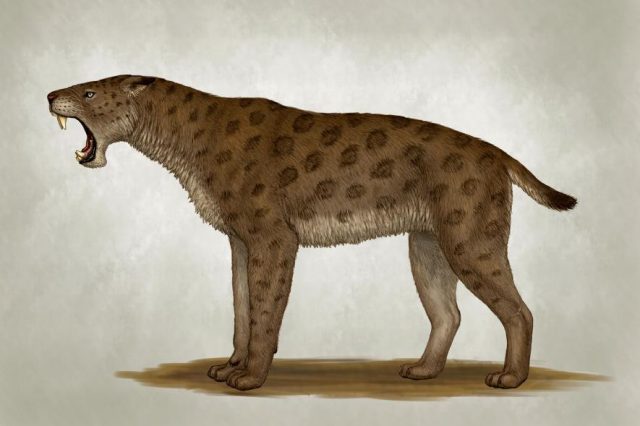MI weekly selection #255

Saber-toothed cats were around longer than previously believed
DNA analysis of a feline jawbone has revealed that a type of saber-toothed cat lived 28,000 years ago, around the same time as modern humans and much later than previously thought. The findings are helping researchers learn even more about Homotherium latidens, aka the scimitar cat, including clues about how and when it went extinct.
Mediterranean tsunamis may have been misinterpreted
Most of the devastating events labeled as tsunamis over the past 4,500 years in the Mediterranean Sea may be related to severe storms instead. Scientists examined 135 events in eight Mediterranean countries and compared them with storm records from the same periods.
Mosquitoes modify takeoff methods to escape a swat
Mosquitoes that have just feasted on blood adjust their takeoff techniques so they can flee their victims before being swatted. Researchers used 3D-motion analysis and various cameras to chart the mosquitoes’ flight process after a heavy meal.
Duplicated DNA part of what makes human beings unique
Duplicates of human DNA that don’t manufacture proteins help differentiate humans from other primates and may be responsible for diseases that only occur in humans. Researchers say that duplicated genes may also be linked to the development of the brain.
Metrologists ponder new definitions for scientific units
New determinations of four basic scientific units are being considered by the International Bureau of Weights and Measures, which will send its recommendations to the General Conference on Weights and Measures next month. The mole, kilogram, kelvin and ampere are set to be redefined in relation to core constants.